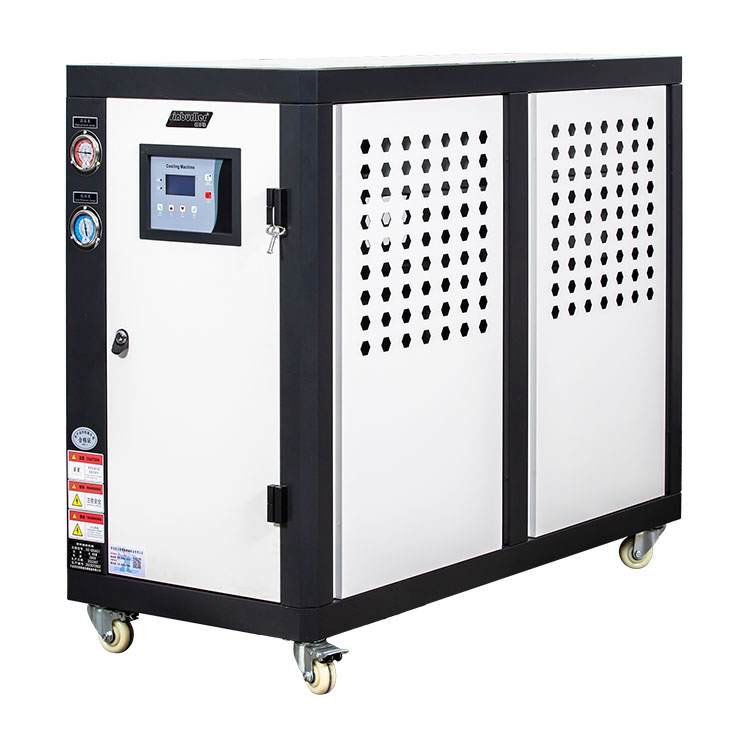Choosing the Right Cooled Chiller for Your Business Needs
2025-03-07
When it comes to selecting a cooling system for commercial, industrial, or medical applications, choosing the right cooled chiller is crucial. These systems provide efficient temperature control, protect equipment, and reduce energy costs. But with various types and configurations available, how do you determine the best option for your needs? In this blog, we’ll guide you through the factors to consider when choosing a cooled chiller.
1. Understand Your Cooling Requirements
Before purchasing a cooled chiller, it’s important to evaluate your cooling needs based on:
- The size of the area or equipment you need to cool.
- The level of temperature precision required.
- The environmental conditions where the chiller will be installed.
For example, a small office may require an air-cooled chiller, whereas a large industrial plant may need a high-capacity water-cooled chiller.

2. Choose Between Air-Cooled and Water-Cooled Chillers
Each type of cooled chiller has distinct advantages:
- Air-Cooled Chillers – Best suited for buildings with limited water access or outdoor installations. They are easy to maintain but may have lower efficiency in hot climates.
- Water-Cooled Chillers – Offer higher efficiency, making them ideal for large-scale cooling in commercial and industrial settings. However, they require a cooling tower and regular water supply.
3. Consider Energy Efficiency
Energy consumption is a key factor in selecting a chiller. Look for the following:
- Energy Efficiency Ratio (EER) – A higher rating indicates better efficiency.
- Variable Speed Compressors – These adjust cooling output based on demand, reducing energy waste.
- Smart Control Systems – Advanced chillers come with digital controls that optimize performance and detect issues early.
Investing in an energy-efficient chiller can significantly reduce operational costs and carbon footprint.
4. Evaluate Maintenance and Operating Costs
Regular maintenance is necessary to keep chillers functioning efficiently. Some factors to consider include:
- Ease of Maintenance – Air-cooled chillers require less maintenance since they don’t use cooling towers.
- Operational Costs – Water-cooled chillers consume less electricity but require regular water treatment.
- Durability – Choosing a high-quality, durable chiller ensures long-term reliability and cost savings.
5. Consider Space and Installation Requirements
Where you plan to install your chiller matters:
- Indoor vs. Outdoor Installation – Air-cooled chillers are often placed outdoors, while water-cooled chillers need dedicated indoor space for the cooling tower.
- Noise Levels – If the chiller is near occupied areas, choose a low-noise model.
- Ventilation Needs – Ensure proper airflow for efficient operation.
6. Look for Environmentally Friendly Options
With growing concerns over climate change, selecting an eco-friendly chiller is a wise decision. Look for:
- Low Global Warming Potential (GWP) Refrigerants
- Energy Star Certified Models
- Recycling and Waste Reduction Features
By prioritizing green technologies, businesses can comply with environmental regulations while reducing long-term costs.
7. Work with a Trusted Supplier
Purchasing a chiller is a long-term investment, so choosing a reliable manufacturer or supplier is essential. Look for companies that:
- Offer warranties and after-sales support.
- Provide installation and maintenance services.
- Have a strong reputation in the industry.
Conclusion
Selecting the right cooled chiller requires careful consideration of cooling needs, energy efficiency, maintenance, and environmental impact. Whether you opt for an air-cooled or water-cooled chiller, investing in the right system will enhance productivity, extend equipment lifespan, and reduce energy costs. By evaluating key factors and working with a trusted supplier, you can ensure optimal performance and long-term savings for your business.

